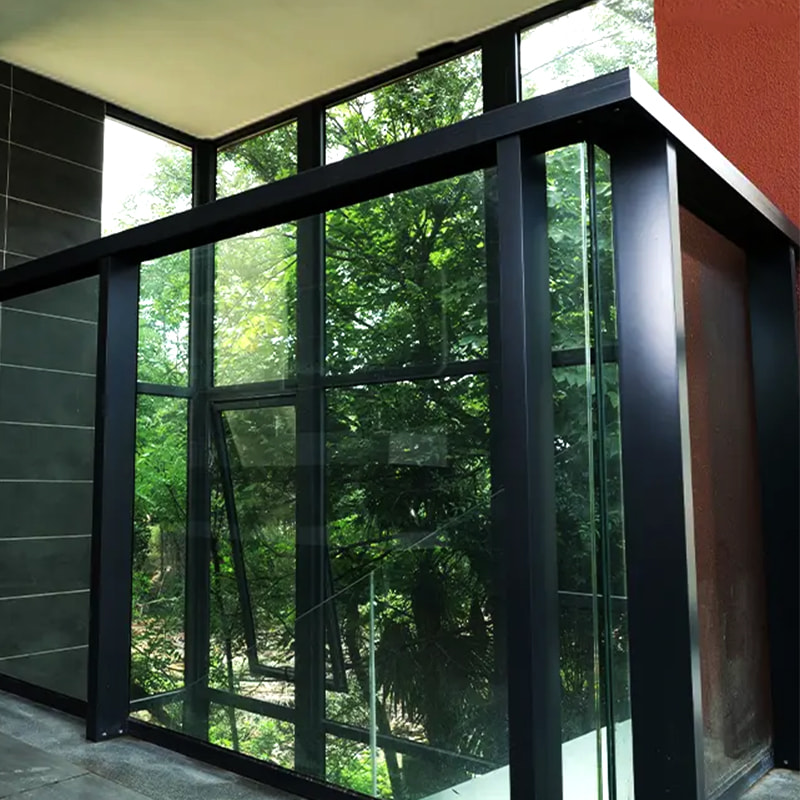Send inquiry
In today’s fast-evolving construction and design world, aluminum alloy railings have rapidly gained popularity due to their unmatched blend of durability, aesthetic appeal, and practical benefits. Whether you're designing a sleek residential balcony, a commercial stairway, or a waterfront deck, these railings offer a contemporary solution that stands the test of time.
What Are Aluminum Alloy Railings?
Aluminum alloy railings are protective or decorative barriers made primarily from a combination of aluminum and other alloying elements like magnesium or silicon. This combination improves strength, corrosion resistance, and formability, making the product suitable for a wide range of applications—from balconies and stairs to patios and bridges.
Why Are Aluminum Alloy Railings So Popular?
1. Exceptional Durability
Aluminum alloys are naturally resistant to rust, corrosion, and weathering, which is especially beneficial for outdoor use. Unlike iron or standard steel railings, aluminum does not degrade easily under harsh conditions such as rain, snow, UV exposure, or salt air.
2. Lightweight Yet Strong
Aluminum alloy is known for its lightweight properties while maintaining high structural integrity. This makes it easier to install and transport compared to heavier materials like wrought iron or stainless steel, reducing both labor and shipping costs.
3. Low Maintenance
Aluminum railings do not require frequent repainting or sealing. Most come with powder-coated finishes that maintain their appearance for years. Simply cleaning with soap and water is enough to keep them looking new.
4. Modern Aesthetic Appeal
From sleek linear designs to custom ornamental options, aluminum alloy railings can be tailored to suit various architectural styles. Available in matte, glossy, metallic, or wood-grain finishes, they effortlessly enhance the curb appeal of any space.
5. Sustainability
Aluminum is 100% recyclable without losing its original properties. Choosing aluminum alloy railings supports sustainable building practices, appealing to eco-conscious homeowners and developers alike.

Common Applications of Aluminum Alloy Railings
Balconies and Terraces
Offer a clean, modern edge while ensuring safety.
Staircases
Ideal for both indoor and outdoor stair rails.
Decks and Patios
Weather-resistant and easy to blend into natural surroundings.
Commercial Spaces
Frequently used in malls, office complexes, and public buildings.
Pool Fences
Resistant to chlorine and moisture—perfect for poolside safety.
Bridges and Walkways
Durable enough to handle heavy traffic and environmental exposure.
What Types of Aluminum Alloy Railings Are Available?
| Type | Description |
| Frameless Glass Railings | Combines aluminum base with glass for unobstructed views and luxury design |
| Cable Rail Systems | Uses aluminum posts and steel cables for a modern, industrial feel |
| Picket Railings | Traditional vertical balusters, widely used in residential spaces |
| Panel Railings | Prefabricated panels offering privacy and wind protection |
| Custom Decorative Styles | Features laser-cut or sculpted aluminum for ornate aesthetics |
How to Choose the Right Aluminum Alloy Railing?
When selecting a railing system, consider the following:
Location: Will it be used indoors or outdoors?
Style Preference: Modern minimalism or traditional elegance?
Safety Standards: Ensure compliance with local building codes.
Finish: Powder coating, anodizing, or woodgrain laminate?
Budget: Aluminum railings come in a wide price range, depending on complexity and customization.
Installation Tips
Aluminum railings are usually modular, making DIY installation feasible.
Use rust-proof stainless steel fasteners to prevent galvanic corrosion.
Ensure posts are anchored properly to avoid wobbling.
Always follow manufacturer guidelines for spacing and height requirements.
Maintenance and Care
Clean every few months with mild soap and water.
Avoid abrasive pads or cleaners that may scratch the coating.
Inspect joints and fasteners annually for tightness.
If powder-coated, touch up chips with a color-matched spray.
Frequently Asked Questions
Q1: Are aluminum alloy railings more expensive than iron railings?
A: Initially, they might be slightly more costly, but the low maintenance and longer lifespan often make them more economical in the long term.
Q2: Can aluminum railings be customized?
A: Yes! They can be cut, bent, anodized, painted, and laser-engraved to meet design specifications.
Q3: How do they perform in extreme climates?
A: Aluminum performs well in both hot and cold climates, especially when treated with proper coatings.
Q4: Are they safe for kids and pets?
A: Absolutely. With the right picket spacing and height, they provide excellent safety.
Conclusion
Aluminum alloy railings offer a perfect combination of strength, beauty, and ease of use for residential, commercial, and industrial projects. Whether you're a contractor, architect, or homeowner, investing in aluminum railings ensures a modern aesthetic that requires minimal upkeep and provides long-term value.